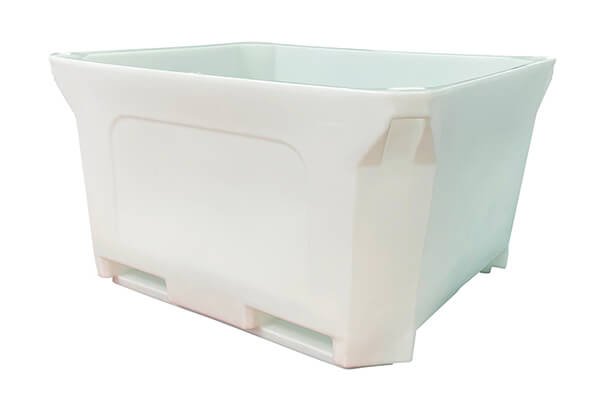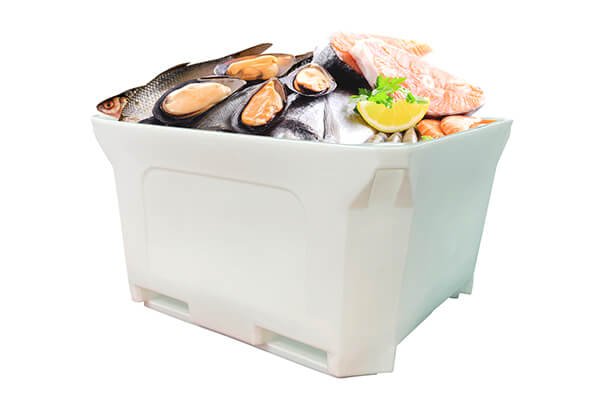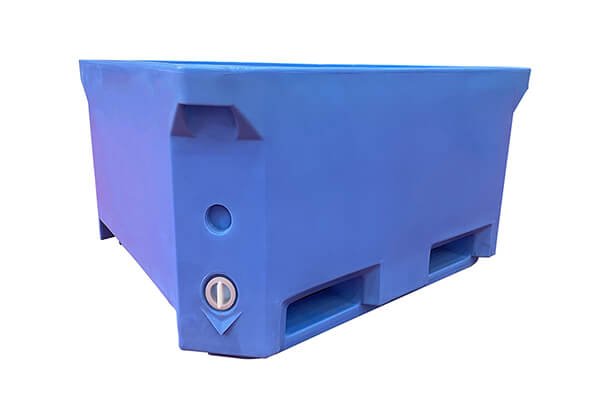In an increasingly globalized supply chain, where temperature-sensitive goods such as pharmaceuticals, fresh produce, seafood, and dairy products need to travel long distances under strict conditions, cold chain logistics has become a cornerstone of modern commerce. At the heart of this transformation is a seemingly simple innovation: the reusable insulated bulk container (IBC). While traditional cold chain packaging often relies on single-use materials, businesses across industries are now turning to reusable insulated bulk containers for better performance, cost efficiency, and sustainability.

The Cold Chain Challenge
Cold chain logistics refers to the temperature-controlled supply chain that ensures perishable products remain within required temperature ranges from origin to destination. Maintaining cold chain integrity is a complex challenge. It involves not just refrigerated transport but also packaging that can preserve temperatures during storage, transit delays, and last-mile delivery.
Traditional cold chain packaging methods include styrofoam boxes, gel packs, and dry ice, many of which are single-use and environmentally unfriendly. These methods may suffice for short distances or one-off deliveries but fall short when it comes to repeated use, large-scale shipping, and environmental stewardship.
Enter the Reusable Insulated Bulk Container
Reusable insulated bulk containers are large, durable containers designed to maintain internal temperatures for extended periods. Constructed from heavy-duty materials like rotomolded polyethylene and filled with polyurethane foam insulation, these containers are capable of withstanding harsh handling while offering superior thermal protection.
These containers are used across a range of industries, from food distribution and pharmaceuticals to agriculture and fisheries. They come in various sizes, often pallet-compatible for easy transport, and are designed to be stackable and nestable for space efficiency when not in use.
Key Benefits of Reusable Insulated Bulk Containers
1. Temperature Stability
The number one reason companies are switching to reusable IBCs is their unmatched thermal performance. These containers can keep contents within strict temperature ranges for 24 to 96 hours or more, depending on external conditions and payload. This is critical for pharmaceuticals and biologics, which can lose efficacy if temperatures deviate even slightly.

2. Durability and Longevity
Unlike flimsy cardboard boxes or polystyrene coolers, reusable insulated containers are built to last. Many can withstand hundreds of trips over several years. Their rugged construction reduces product loss due to temperature excursions or physical damage during transit.
3. Cost Efficiency Over Time
Though the initial investment is higher, reusable containers pay for themselves over time through reduced need for replacement packaging, lower spoilage rates, and operational efficiency. For companies making regular shipments, the cost-per-use drops significantly compared to disposable solutions.
4. Environmental Sustainability
In an era where ESG (Environmental, Social, and Governance) goals are increasingly important, reducing single-use plastics and packaging waste is a major incentive. Reusable containers cut down on landfill waste and carbon emissions associated with producing and disposing of disposable packaging.
5. Operational Efficiency
Most reusable IBCs are designed with ease of use in mind. Features like forklift pockets, interlocking lids, and drain plugs make them ideal for high-volume operations. Some advanced models even come with data loggers or RFID tags for temperature tracking and inventory management.
Use Cases Across Industries
Pharmaceuticals:
Temperature excursions can render life-saving medications useless. Reusable IBCs provide reliable thermal insulation that meets stringent regulatory requirements, making them ideal for vaccines, biologics, and clinical trial shipments.
Food and Beverage:
From farm to fork, food products need to stay fresh and safe. Whether transporting seafood from coastal fisheries or dairy products from rural farms, reusable insulated containers keep perishable items at the right temperature, minimizing spoilage and extending shelf life.
Agriculture and Horticulture:
Produce and flowers often travel great distances. Insulated bulk containers protect these temperature-sensitive products from wilting or spoilage. This helps farmers and exporters maintain product quality from field to market.
The Future of Cold Chain Logistics
As global demand for perishable goods continues to rise, so does the need for more reliable, sustainable, and cost-effective cold chain solutions. Innovations in materials, IoT integration, and container design are further enhancing the capabilities of reusable IBCs. For example, containers equipped with temperature sensors and GPS tracking allow companies to monitor shipments in real time, reducing the risk of loss and improving accountability.
Moreover, regulatory pressure and customer expectations push companies to reduce their environmental impact. Reusable insulated bulk containers align with both regulatory compliance and consumer preference for greener business practices.

Final Thoughts
The cold chain is only as strong as its weakest link. In many cases, that link is inadequate packaging. By investing in reusable insulated bulk containers, companies strengthen their supply chains, protect valuable goods, cut costs, and demonstrate their commitment to sustainability. It’s not just a packaging decision. It’s a strategic move toward a more efficient and responsible future in cold chain logistics.

